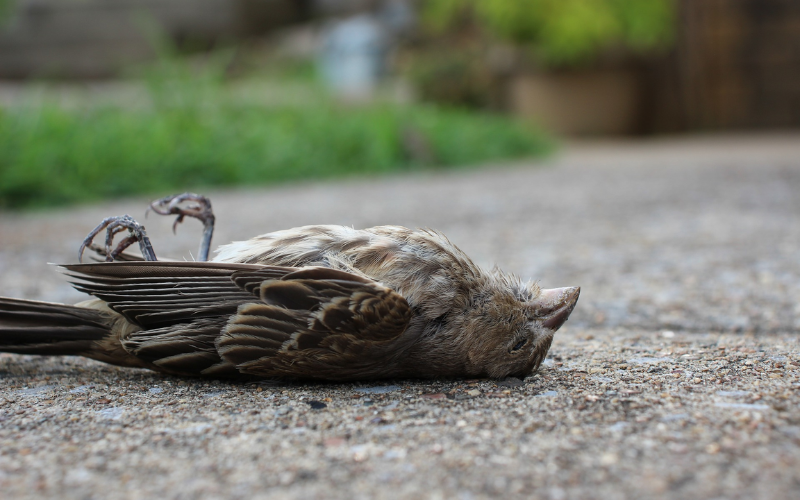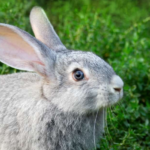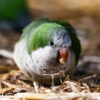- How Long Does A Quaker Parrot Live? - 17 May 2024
- 4 Hacks on Keeping Your Home Clean With Pets - 28 March 2024
- 5 Things to Know Before Bringing Home a New Kitten - 26 March 2024
We all know birds have delicate and specialized digestive systems prone to various health issues, including constipation. Bird owners always understand the risks associated with constipation and preventive measures that need to be taken for the well-being of feathered friends. Let’s get into the blog to learn about the life-threatening reasons why birds can die from constipation.
Reasons for Constipation in Birds

Constipation in birds occurs due to various reasons. Some of these include:
Improper Hydration
Birds require proper hydration to maintain healthy digestion. If a bird doesn’t consume enough water, it can lead to dehydration and subsequent constipation.
Poor Diet
A diet lacking in fiber can contribute to constipation in birds. They need a variety of fresh fruits, veggies, and high-quality pellets to ensure adequate fiber intake. A diet with seeds may lack the necessary fiber content, increasing the risk of constipation.
Lack of Exercise
Physical activity maintains healthy digestion in birds. Insufficient exercise or lack of opportunities for movement and flight can cause decreased gut motility and increased chances of constipation.
Ingestion of Foreign Objects
Birds are curious creatures and accidentally ingest non-food items such as small toys, fabric, or other objects. The foreign bodies can obstruct the digestive tract and lead to constipation.
Gastrointestinal Blockage
Certain medical conditions such as tumors, gastrointestinal strictures, or disorders affecting food movement through the digestive system can cause bird constipation.
Emotional Stress
Birds are sensitive creatures, and their environmental stress or changes can impact their digestive health. Stress-induced constipation can occur during relocation, loud noises, or significant disruptions in routine.
What are the Precautions for Constipation in Birds?
When it comes to preventing constipation in birds, there are several precautions you can take. Here are some essential measures to help maintain your bird’s digestive health:
Provide a balanced diet
Ensure your bird’s diet includes fresh fruits, veggies, and high-quality pellets. These foods contain essential nutrients and fiber necessary for proper digestion. Avoid excessive reliance on seed-based diets as they are low in fiber.
Incorporate Physical Activity
Allow your bird several opportunities for exercise and flight within a safe and bird-proofed environment. It helps to stimulate gut motility and prevents digestive issues.
Promote Mental Stimulation
Ensure you provide birds with toys, puzzles, and interactive activities to keep them mentally engaged. Mental stimulation can help to reduce stress and promote overall well-being, including healthy digestion.
Avoid Toxic Substances
Exposing birds to toxic substances such as household cleaners, pesticides, and certain plants. Ingesting these substances can disrupt the bird’s digestive system and lead to constipation.
Regular Veterinary Check-ups
Schedule routine check-ups to monitor the bird’s overall health and detect any underlying issues. They provide detailed guidance on diet, Behavior, and general care specific to bird species.
Types of Birds More Susceptible To Constipation

While constipation can affect birds of any species, some are more susceptible to this condition due to specific dietary conditions. Here are a few bird species that may be prone to constipation:
Budgerigars
They are small parrots that are commonly kept as pets. Their diet often consists of seeds and, if not supplemented with fresh fruits, veggies, and pellets, can lead to digestive issues and constipation.
Cockatiels
There are other popular pet bird species. They are similar to budgies as they rely heavily on seed-based diets. Without a balanced diet that includes adequate fiber, cockatiels may experience constipation.
Lovebirds
They are known for their voracious appetite. Their tendency to overeat can lead to constipation, especially if they consume a diet lacking in fiber-rich foods.
Finch Species
They are often fed a seed-based diet because they are more susceptible to constipation due to insufficient dietary fiber and water intake.
Complications Resulting From Untreated Constipation
Untreated or severe bird constipation can cause several complications impacting their health and well-being. Some potential complications due to untreated constipation are Prolonged constipation causes the colon to become distended and lose its ability to contract effectively. This condition, known as megacolon, can lead to chronic constipation and severe discomfort for the bird. When constipation persists, the accumulation of dry fecal matter can form a hard mass called an impaction.
It can obstruct the digestive tract, preventing the normal passage of feces. This can result in severe pain, loss of appetite, and even a complete blockage of the intestines. When waste materials remain in the digestive tract for extended periods, toxins can be reabsorbed into the bird’s bloodstream. It can lead to systemic illness affecting various organs and causing generalized malaise. Constipation weakens the bird’s immune system, making them more susceptible to secondary infections.
How Bird Die From Constipation?
Yes, severe constipation in birds can cause serious complications and, if left untreated, can result in the bird’s death. It may not directly cause death, but the problems that can arise from untreated constipation can be life-threatening. Conditions including impaction, megacolon, cloacal prolapse, toxin absorption, secondary infections, and nutritional deficiencies can result from untreated constipation.
These complications can severely impact the bird’s overall health, leading to pain, discomfort, organ dysfunction, and a weakened immune system. If left unaddressed, the bird’s condition may worsen, potentially resulting in a fatal outcome.
Monitoring And Supporting the Bird’s Recovery

Here are some guidelines to help you:
Veterinary Care
It is essential to consult with an avian veterinarian. They can properly diagnose, rule out any underlying medical conditions, and recommend appropriate treatments or interventions based on the bird’s needs.
Follow Treatment Recommendations
Ensure you follow the veterinarian’s advice regarding medication, dietary changes, and other treatment options prescribed for birds. Be consistent in administering medications and implementing the treatment plan.
Monitor bowel movements
Keep an eye on the bird’s bowel movements during the recovery process. Observe the frequency, consistency, and color of droppings. Any significant changes in normal droppings should be reported to the veterinarian.
Wrapup
These are the reasons for bird constipation and keep in mind that the bird’s recovery process may vary. It’s essential to follow the guidance of an avian veterinarian throughout the monitoring and recovery period. Regular communication with a veterinarian and close observation of a bird’s condition helps to prevent a bird from dying from constipation.
















